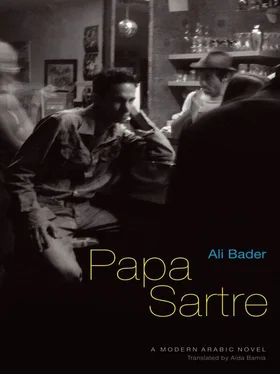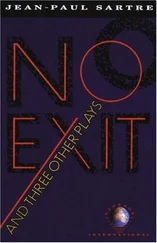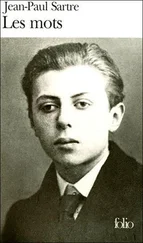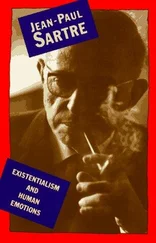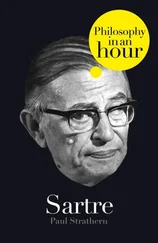Jawad hurried along behind me, his eyes deep in their sockets. The weather was refreshingly humid. The cool air hit my face, and the sun was warm, especially when we walked on the bright side of the street. We were walking on al-Rashid Street, where the many groceries displayed boxes of toffee, sweets, and all kinds of confections. Boutiques, tailor shops, watch shops, and jewelry stores lined the street, and people crowded into the restaurants for cheap sandwiches.
I was thinking about the philosopher’s companions from the sixties who had turned to selling fruit at al-Camp market after becoming involved in philosophy. I had to see them, to get something from them that I could use — or at least obtain their photographs to include in the book. We walked toward the square and caught a taxi after Jawad bought a pack of cigarettes and lit one up. We arrived as the clock of al-Imam al-A‘dham was on its third ring. The place was crowded with buyers and salesmen. In the fruit market we inquired about the two men and were told that they were in the restaurant at the end of the main street.
The market was humid and stuffy, the ground was muddy, and water seeped from the badly paved street. The restaurant was located at one end of the market, a small place with a low ceiling, painted a cheap white and with a dirty glass facade. All kinds of people pressed together inside — fruit and spice merchants wearing their white dishdashas with belts tied around plump bellies, young men wearing western clothes, policemen in khaki uniforms and boots, their thick walnut billy clubs on the table, and women in black abayas. A large grill at the entrance of the restaurant filled the air with the smell of coal and grilled meat. The servers were rushing about, wearing white aprons and caps bearing the restaurant’s name. We were greeted by the sounds of orders being shouted across the restaurant — kebab, salad without vinegar, bread — the metallic sound of spoons and plates dropped onto the sticky tables, and the clamor of the dishwashers echoing on the wet brick floor.
We inquired about Abbas Philosophy and Salman. They didn’t look like philosophers at all, more like fruit merchants. They were middle-aged men with huge bellies that hit the edge of the table whenever they moved. Their table was filled with all kinds of grilled meat, bread, pickles, grilled onions, and vegetables. They welcomed me and Jawad very warmly and were extremely surprised to learn that someone, finally, had remembered them. One of them said, “You’ve finally remembered the great men of the country. We were afraid to die for fear that our memory and that of the greatest Arab philosopher, the philosopher of al-Sadriya, would be lost forever.”
They talked and ate while I looked over their fat faces and the new outfits they wore, with narrow ties and starched collars, a style that was popular in the sixties. They talked with their mouths full, round, bald heads covered with sweat, and glasses continuously slipping off their noses. When their mouths were too full they would push the food in with their fingers. They took turns talking about the philosopher, while I took notes and Jawad ate — he dug in as soon as they invited us to join them. I reproached him and kicked him in the foot, but he ignored me and kept on eating. He shared their food, making sandwiches of kebab and grilled onions. A piece of celery fell out of his mouth onto the table.
They talked like all those I’d talked to already. I searched for words that would put me on the right path, but to no avail. They embellished the philosopher’s image with made-up stories as if decorating a Christmas tree with random shiny and colorful baubles. They meant well, yet what they gave me were falsifications, perhaps prompted by a desire to hide their embarrassment at having been so long ignored and estranged. They provided me with their information and histrionic comments, played roles, and incongruously arrogated importance to themselves, sometimes obviously, but usually more subtly.
Their comments about the sixties sounded more like crying over a lost Eden that had cast out the philosopher. Nonetheless, I had no choice but to write down everything, both the noble and heroic motivations that I mutely condemn and the ignoble and sordid emotions that I respect. Such feelings prove that the philosopher was a human being, not a legendary hero, that he was weak, mean, and lazy like the rest of us, not a god.
Sitting face to face with these two I felt I was dealing with people who organize their lives into a tight system, believing it to be full and complete, the only life worth living. I’m tempted to say that they can’t conceive of the existence of the lives of others who preceded them or others that followed. They’re unable to view things except through their own glasses, lenses of their own making. The men ate nonstop, leaving me little time for questions. No sooner would one stop than the other would start up. I felt squeezed between them. They imparted both valuable and insignificant information, critical and ordinary remarks, and they kept insisting that I consider everything they were saying very important. I thus found myself writing down mostly what they wanted me to record and not much of what I wanted.
What I was really looking for was the thread that would lead me to the root of the matter. I was seeking highly germane testimonies from people whom I expected to be gifted or endowed with more refined vision than the average person and who could provide me with valuable information that would eliminate the possibility of distortion.
These two men were not distinct from ordinary people in their view of the philosopher. Their representation of the philosopher was the same I encountered everywhere: among his friends he was seen as an amalgam of virtues, and his enemies saw him as an amalgam of vices. Theirs was first and foremost a moral evaluation. They’d say, “He is the Sartre of the Arab World, and Sartre sent him to save the nation and put an end to the life of banditry brought about by the fifties. His life was complete and pure, a model of greatness and beauty because he did not begin it, as others did, with serious weaknesses.”
I left the low-ceilinged restaurant with Jawad, who felt happy and satiated, having eaten his fill. A dog loitered outside, drinking water, and two wet cats waited for leftover kebab. Jawad took a photograph as they were eating and was pleased with himself. He smoked a cigarette and blew the smoke from his nose and mouth into the cold air.
The clouds were getting thicker, and the winter evening sun was sinking behind the minaret. The blue of the sky and the white clouds were tinted with a trace of red. We walked until we reached the royal cemetery with its wet, dark green trees. A patch of red sun covered their tops. It gradually got colder, and walking was becoming difficult. Our fingers were freezing, our faces were turning red, and our limbs trembled from cold. We each took a taxi, Jawad to Hanna Yusif’s house, and I to my apartment.
That evening I found myself facing thousands of documents, photographs, scraps of information, and commentaries about the al-Sadriya philosopher. They all described an unusual personality, unique in its kind, a personality that represented both the dramatic world of a whole society and the tragic loneliness of an entire nation. It was my task to assess the destructive impact of the imaginary personality that had been catapulted to the rank of the gods, somehow bring this image down from the dizzying heights to which they had projected it in order to fill a huge gap in their own souls, and cope with the bitterness of their failed accomplishment.
No one among them understood his multifaceted character or the contradictions that produced his positive energy. Nor were they aware of the true nature of his humanity, a distinction of his rather than a defect. I was aware of his weaknesses as I laid the appropriate pieces of fabric to clothe his stripped body and each time I added a new feature to his face. I was searching under his diverse apparitions for the evolution of his personality, the pitches of his wellbeing, and his feelings as they interconnected with those of the world that surrounded him. I was trying to find the rhythm of his childhood and youth and his relationships within the huge social complex. I would not have been able to accept his great value before I had found in it all kinds of meanness, lowness, and vileness, which I considered to be true manifestations of human nature.
Читать дальше
